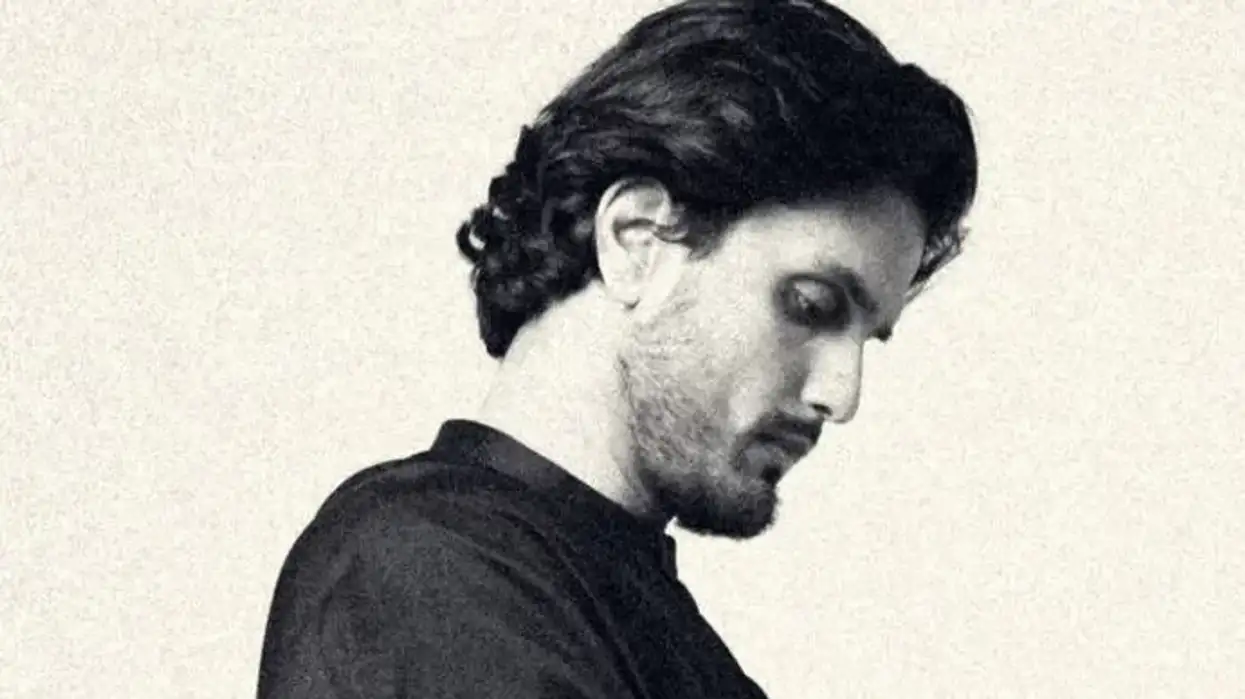RUSHIL RANJAN initially went to university to study law but discovered a deep connection to music at the age of 19, which changed the course of his life.
The self-taught composer was captivated by Indian classical music and qawwali, and that passion set him on a new path. His fascination with these art forms led him to work closely with the music and artists who performed them.
“I noticed through practice that orchestral music, Indian classical music, and qawwali make really natural sonic companions. There is a gravitas to these art forms and a shared connection to spirituality and the divine. They come from a heritage rich in meaning. As a composer, my role is to bring them together and highlight these connections for audiences. That has been my journey,” Ranjan explained.
This journey led him to create stunning compositions, culturally rich live shows, and co-found the critically acclaimed Orchestral Qawwali Project with singer Abi Sampa. One of their most memorable performances took place earlier this year at the Royal Albert Hall, where the Orchestral Qawwali Project collaborated with the Royal Philharmonic Orchestra and Choir for a breathtaking show.
Ranjan described that performance as the culmination of a decade-long dream to unite a grand orchestra with qawwali. “The venue was the perfect place to achieve the scale of my artistic vision. The audience’s response was incredible – the venue sold out, and the energy they gave us that night was magical.”
His latest piece, Mãyã, commissioned by the Manchester Camerata, continues his exploration of cross-cultural music by blending Carnatic music with Western classical traditions. “It is an opportunity to seamlessly combine Carnatic music with Western classical forms to create something new.”
Ranjan describes the new piece as intimate and beautifully crafted, offering a unique interaction between the two musical worlds. “We are working with a smaller, dynamic group of world-class musicians from both the Camerata and the Carnatic tradition. The flexibility of a smaller ensemble will really complement the rhythmic and mathematical complexity intrinsic to Carnatic music.”
He finds it intellectually stimulating that Carnatic music is the source of many Indian classical traditions he works with. “Carnatic music is the oldest form of Indian classical music and the origin point for other traditions. It is so potent and beautiful.”
Ranjan sees these traditions as a treasure trove for creating magical compositions. He enjoys working with orchestras for the immersive, larger than-life sound they produce and considers the collaborative process deeply fulfilling. “Writing for orchestras allows me to keep developing my craft. It is a journey I hope to continue for the rest of my life. I love the idea of constantly improving and evolving.”
Having worked with Manchester Camerata before, Ranjan has built a strong relationship with the musicians. He believes the key to blending diverse musical influences is identifying the common thread. “In Indian classical, Sufi, and Western classical music, the connection to divinity and spirituality is what unites them.”
Working with world-class artists enhances the process. For Mãyã, Ranjan collaborated with talents such as Abi Sampa, Praveen Prathapan, Janan Sathiendran, and Krishna Prasad KV. He praised the calibre of musicians involved. “The UK is one of the few places in the world where artists of this standard, performing such diverse art forms, live so closely together.”
Ranjan’s music has connected with audiences across cultures and generations, becoming a cultural access point. “When we performed at Birmingham Symphony Hall last year, most of the audience had never heard an orchestra before. Afterwards, we received many messages from them, saying they had fallen in love with the sound of the orchestra, with Sufi and qawwali music serving as their entry point. In turn, they experienced something new and different. This exchange works both ways, enriching everyone involved.”
Ranjan with Abi Sampa at the Royal Albert HallHis work has also introduced Western audiences to south Asian art forms through familiar orchestration. “We have performed in places where the audience was unfamiliar with south Asian music, but the orchestra provided an entry point. It enables them to explore new artistic territory and embark on their own journeys.”
Like the great Orchestral Qawwali Project concerts, Mãyã also combines contrasting classical ensembles. However, the similarities end there, as Ranjan is working with a smaller, highly dynamic group of musicians from the Manchester Camerata orchestra, along with artists such as Carnatic vocalist Krishna Prasad KV and percussionist Janan Satyendran. “The sound will be totally different from anything we have done before. It will be more intimate, and I am really looking forward to sharing that with people.”
As in many of his major projects, versatile singer Abi Sampa plays a key role in the show and is in many ways his secret weapon. Ranjan praises her talent. “Her voice moves people. She also has a remarkable mind – she understands both Indian and Western classical music and can straddle those two worlds seamlessly. Very few musicians can integrate Indian classical techniques into Western classical music in such a cohesive way. That is one of the many things I love about working with her.”
Ranjan draws creative inspiration from the idea of service through music, finding motivation in artists who dedicate themselves to their craft. “I read stories about people who worked on cathedrals, knowing they would die long before the buildings were completed. That kind of dedication, with no expectation, inspires me. I find it meaningful to be part of something greater.”
Like other artists and composers, music is integral to Ranjan’s life. “We are not whole without music. Even though the process can be difficult and painful, we have no choice but to keep doing it. Music has immense power to bring people together – I have experienced that firsthand, and it has been a defining part of my journey.”
Rushil Ranjan’s Mãyã will be premiered by Manchester Camerata at The Stoller Hall next Wednesday (30) and performed in Sheffield next Friday (1).




